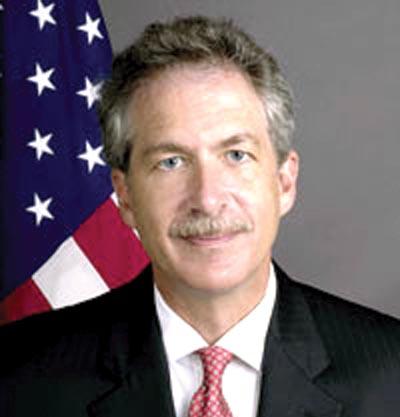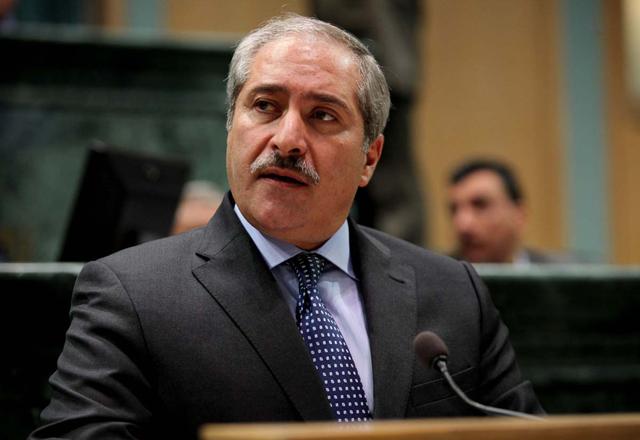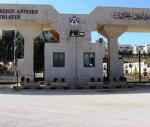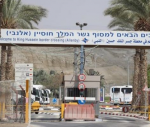You are here
Jordan’s concerns, interests in peace process taken into account — Burns
Jan 28,2014 - Last updated at Jan 28,2014
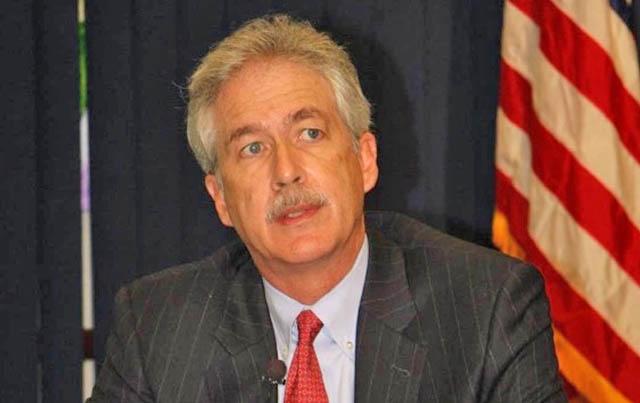
AMMAN — The US takes into account the concerns and interests of Jordan in the ongoing efforts to find a solution to the Palestinian-Israeli problem and is in continuous contact with the Kingdom on the progress of these endeavours, US Deputy Secretary of State William Burns has said.
Burns told chief editors of Jordanian dailies on Monday that the US has been consulting very closely with the Kingdom on the issue as Washington deeply appreciates Jordan’s constructive role in trying to find a solution to the decades-old conflict.
“We clearly understand Jordan’s profound stake in this process, and Jordan’s profound stake in progress toward a two-state solution, as well as the importance of addressing Jordan’s interests along the way,” said Burns.
“President [Barack] Obama and Secretary [of State John] Kerry are strongly committed to achieving a final status agreement and we have no better partner in that effort than King Abdullah,” he emphasised. (Full text of Burns’ remarks)
The US official was speaking at a time when some political circles in the Kingdom were expressing fears that the US efforts to resolve the Mideast conflict would come at the expense of Jordan, which is hosting the largest number of Palestinian refugees, and would compromise the Palestinian refugees’ rights to return and compensation on the basis of UN resolutions.
Burns said the issue of refugees remains one of the biggest challenges to making progress not only in the framework agreement that Kerry is trying to come up with, but also towards a permanent status solution. The state secretary has been working on a framework paper to serve as a basis for future negotiations between Israel and Palestine to pave the ground for finding a solution to the Middle East problem, he added.
Burns declined to give further details on the ongoing US efforts: “I think Secretary Kerry has done a remarkably good job of preserving the privacy of this process. But what I would simply re-emphasise is that we take into account very clearly the concerns and the interests of Jordan, both on the refugee issue and on a range of other issues.”
“I think Jordan’s interests are clearly and consistently being taken into account, and I think Jordan is making an important contribution to the progress that we have seen so far and hopefully the progress we will see in eventually reaching a final status solution,” he said.
Reforms
The senior US diplomat and former ambassador to Jordan also said his country remains committed to supporting Jordan’s economic modernisation and reform, noting that his country’s annual assistance to the Kingdom has reached about $1 billion over the past two years.
“I know the process of reform is not easy for Jordanians, but I also know that continuing down the path of economic and political reform outlined by the King is crucial to Jordan’s future as Jordan seeks to realise the full potential of what I have always seen to be the greatest resource of this country, the talent and creativity of its people,” he said.
“It’s not easy to create economic opportunities. It’s not easy to build political transparency or respect for political pluralism. And it’s not easy to fight corruption. But all of those efforts are deeply in the self-interest of Jordan and Jordanians in the months and years ahead,” he added.
‘Partnership matters more than ever’
With the regional developments taking a serious turn in more than one place, the US-Jordanian partnership “matters today more than ever”, said the diplomat.
On Syria, Burns said that both Amman and Washington strongly support the Geneva II process.
“Neither of us have any illusions. Geneva II is the beginning of a long and difficult process aimed at political transition. Along the way, it may be possible to take steps such as local ceasefires, prisoner exchanges and greater humanitarian access. But the key will remain the transition to a new leadership. That’s the purpose and the aim of the process.”
He said the US deems Syrian President Bashar Assad “a magnet for violent extremists and the longer he stays in power the more dangerous the situation becomes for Syrians and for the region”.
He also expressed understanding of the burdens the Kingdom is shouldering as a key host of Syrian refugees, noting that a significant portion of US’ assistance and pledge to help ease the crisis, which now totals $1.7 billion, will go to Jordan.
“A lot of people don’t appreciate that 80 per cent of Syrian refugees in Jordan live in Jordanian communities outside of refugee camps, so that’s why in addition to the humanitarian assistance that I have just described, the United States has stepped up development assistance in Jordan, so that we can help provide to all the residents of those communities, Jordanians and Syrians alike, increased access to education, housing, healthcare, water and other basic needs.”
Iran and Saudi Arabia
The US official insisted that there is no “rupture” in ties with Saudi Arabia after the recent deal between world powers and Iran over its nuclear project.
“I don’t believe we have ruptured ties with Saudi Arabia. The United States continues to attach a great deal of importance to the US-Saudi relationship and we share a number of very important common concerns in the region.”
He said that the nuclear issue is the most immediate of the challenges that Iran poses, which include threats to regional stability through Tehran’s involvement in Syria, Lebanon, Yemen and Iraq.
He said the initial deal with Iran, which also involved the other permanent members of the UN Security Council plus Germany, “in essence caps the Iranian nuclear programme. It stops further progress and in a couple of respects rolls back the Iranian programme… I have no illusions about how hard that is going to be, but it’s important to test that proposition because I think as long as there is a diplomatic possibility of resolving this issue, and by resolving it I mean an outcome in which Iran has a civil nuclear programme but one that is devoted to exclusively peaceful purposes, one that doesn’t allow Iran to develop a nuclear weapon”.
Egypt
Burns stressed that his country fully appreciates how complicated those challenges are, saying that Washington will continue help to revive the Egyptian economy and support a political process.
But for the process to prove a success, it should be one “which acknowledges the dignity of each Egyptian citizen, which allows for political pluralism and respect for the rule of law, which allows for political processes without intimidation or coercion, which allows players in that political process who are committed to peaceful rules of the road to participate, and which underscores the importance of accountability in governance”.
Related Articles
Following are remarks by Deputy Secretary of State William J. Burns during his meeting with chief editors of Jordanian newspapers at the US Embassy in Amman on Monday, January 27, 2014:
Foreign Minister Nasser Judeh on Monday discussed with US Deputy Secretary of State William Burns bilateral ties and the latest regional developments, especially the peace process and the situation in Syria.
Jordan will not accept any solution to the Palestinian refugee issue without taking into consideration its national interests including those of its citizens of Palestinian origin, a senior official said on Sunday.


